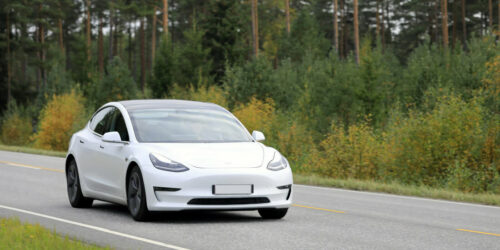How Long Does It Take to Charge an Electric Car?
- Save over £1,000 a year with an electric car
- Get £350 off charging port costs
- Use our online calculator to get a free quote for an electric car charger in seconds
Talk to anyone about switching to an electric car and the primary concern is how long it takes to charge an electric car. As an important mode of transport many people use to carry out their every day routine, impractical charging times will render an EV useless.
Electric cars are future-ready so new improvements are always on the way meaning there are a number of speeds at which electric vehicles charge. With the capacity to save you at least £1,000, possibly a number of times over, it’s worth further exploration.
Indeed, EV charging times will be a growing topic as we continue to move away from fossil fuels towards an increasing number of environmentally-friendly options. Petrol prices are already rising sharply whilst EV charging stations are an increasingly visible presence in our local areas.
With electric cars so much cheaper to run plus the added bonus of cutting your carbon emissions as you travel, there’s plenty of reasons to use an electric vehicle.
Though rapid charging sounds like a great option, it comes with many limitations so fast or even slow charging times may suit you better,
Let’s take a look at the range of charging times available for electric cars to see which will best suit your daily routines.
See how much you’d pay. Get a free quote for an electric car charger.
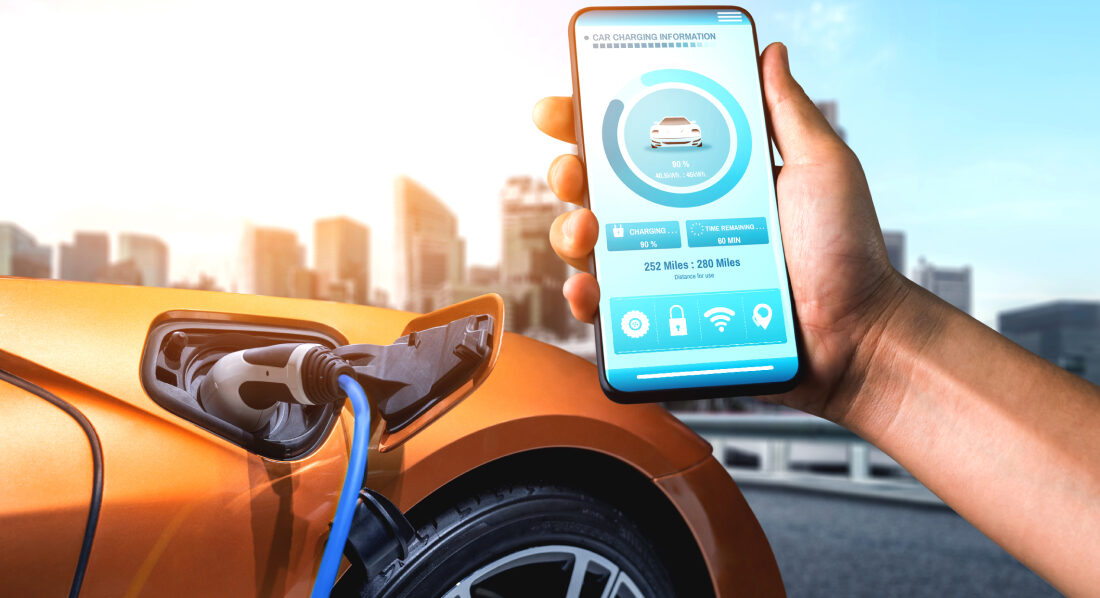
What's On This Page?
Click the links below and head straight to a specific section of the article.
- The EV Charging Curve
- What to Consider When Choosing an Electric Car Charger
- How Long Does It Take to Charge an Electric Car With a Fast Electric Car Charger?
- How Long Does It Take to Charge an Electric Car With a Slow EV Charger?
- How Long Does It Take to Charge an Electric Car With a Rapid Car Charger?
The EV Charging Curve
EVs don't charge instantly at full power. When plugged in, it takes them a while to draw electricity at their limit. After an initial slow charge, the battery acts the same way as any other battery powered technology. Not every electric vehicle will charge the exact same way though. Take a look at the curve in the graph below.
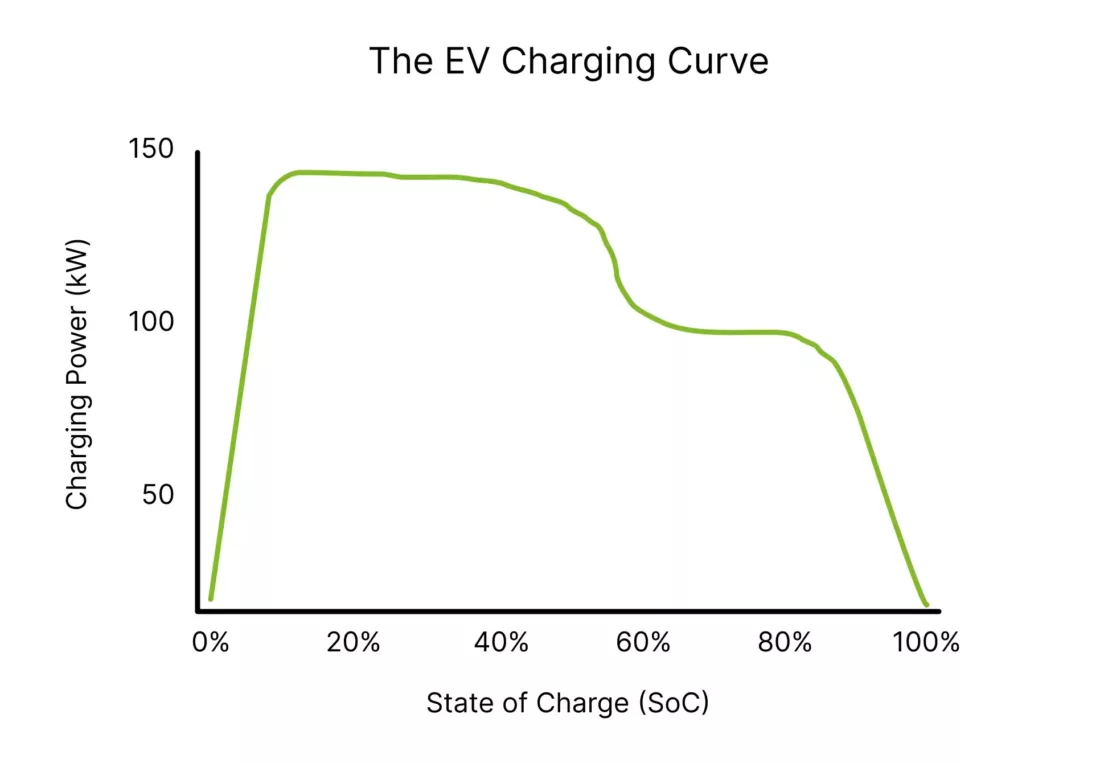
The car decides how quickly it charges to preserve the battery life. If conditions are right, peak charging power is achieved between 10-20% state of charge (SoC). The longer it continues to charge, it drops off. As the battery becomes more full, the charge decreases, until finally sharply dropping after 80%. This is one of the reasons why charging above 80% isn't really considered for most EV drivers and the main reason why charging from 80-100% will always take longer than charging from 10-80%.
What to Consider When Choosing an Electric Car Charger
There are a number of elements which decrease charging speeds, particularly for chargers that work at a faster rate.
Depending on your charging habits and the type of battery you have, these considerations may affect the charger speed you choose. On the whole, slower charging speeds are less affected by external factors than rapid charging.
Elements which impact charging speeds:
- Does the pre-determined rate of charge for the battery match the charger? The amount of power your electric car battery can receive from the charger is pre-set. Therefore, there is a limit to how much current your battery can manage at any one time meaning a rate of charge that’s too fast won’t work any quicker than the car battery limit allows and vice-versa.
- For example, if your car battery charge rate is 13kW, no matter how quick the charger you use is, your battery will always charge at 13kW.
- How low do you let your car battery go before charging it? The last 20% of power in an electric car battery takes the longest amount of time to charge, making slower charge times more suitable for batteries which are on the last 20% of power or less.
- How long are the journeys you make? The faster the charge, the more driving miles you’ll get from the electric car. In 45 minutes the average rapid charger will provide you with around 130 miles whilst a standard fast charger will provide around 22 miles and the average slow charger around 7 miles.
- Will you use top-up chargers? EV chargers are popping up everywhere. Will you utilise them, as and when you see them, so your electric vehicle battery is constantly topped up? If you plan to regularly top up your battery with public EV chargers, you’ll probably want to round things off with a full battery charge through the night using a slow or super-quick charger for peace of mind.
- How cold is it? Charge times decrease if external temperatures drop because heating up the battery depletes charge speeds (despite integrated heating systems), particularly if most of your journeys are only for short distances. How far can an electric car go?
- How big is the car battery? Standard ratios mean the larger an electric car battery is, the longer it will take to charge.
With these general considerations in mind, let’s take a look at the range of different charge speeds available for electric car charging or get a free quote for an electric car charger and see how much you’d pay in seconds.
How Long Does It Take to Charge an Electric Car With a Fast Electric Car Charger?
Fitting seamlessly with busy contemporary lifestyles, fast electric car chargers are the speed of choice for most drivers. Standard fast electric car chargers for home use usually deliver a charging rate of 7kW.
A 7kW charger will charge your electric vehicle twice as fast as a slow charger. Specific charge times depend on the size of your car battery and how much charge you have left but if your battery is half empty, you can expect it to be re-charged within 3-6 hours with a fast charger.
22kW Fast Chargers
If you want to opt for a more pricey 22kW charger, check your car charge rate will be able to receive that much charge. Most domestic cars don’t so 22kW chargers for home use aren’t common although you can find them at top-up charging stations.
If your car does charge at a 22kW charging rate, you can charge your car in half the time of a standard domestic car charger.
However 22kW chargers need a three-phase electricity supply to work. Three-phase electricity is usually found on industrial premises. It requires three 100 amp fuses, delivers powering at both 240 volts and 415 volts, a level of voltage that’s far too high for domestic use so you’ll have to settle for 7kW!
Discover more about electric car charging in our complete guide to EV charging or get a free quote today using our online calculator and see how much you’d pay for an electric car charger.
How Long Does It Take to Charge an Electric Car With a Slow EV charger?
If you plan to use a portable electric car charger because you don’t have a parking space directly outside your home or like the reassurance of knowing you have quick access to a charger at any time, your portable charger is likely to be slow charging.
Alternatively, if your car comes with a free charger it’s going to be slow charging.
For most drivers, slow car charging is the stuff of nightmares although it will make your charger last longer.
The vast majority of us need charging to be completed quickly however the charge times associated with slow charging are long. Obviously, the actual charge duration for your electric car will depend on the size of your battery but as general rule, for a battery that’s half empty, on a slow charge you’ll need at least 6-12 hours meaning a full re-charge could take a whole day.
So slow chargers are only really an option if you don’t use your electric car regularly and will remember to charge the battery when it runs low.
Learn more about electric car charging in our comprehensive guide to EV charging. Or get a free quote for an electric car charger now and see how much you’d pay in seconds.
How Long Does It Take to Charge an Electric Car With a Rapid Car Charger?
Theoretically, rapid car charging should be the first choice for the busy lives we lead however it comes with a number of drawbacks.
Firstly, super-fast charging, which can reach charging rates as high as 350kW, requires a charging rate of at least 50kW, meaning it’s really only an option for cars at the pricier end of the market.
Fast speeds and electricity also mean there are high temperatures involved. When it comes to domestic use, overnight charging and home safety, a rapid charger might not be your first choice.
Additionally, these chargers should only be used to charge your battery until it’s 80% full.
If you are set on using one, lots of standard domestic cars can be upgraded to receive charge rates of up to 100kW but obviously, your battery life will shorten.
Super-fast chargers can be found on motorways or at rapid charging stations. Able to charge a battery that’s half empty in around 30 minutes, it’s easy to see the appeal of a rapid electric car charger.
How Do Electric Car Charging Speeds Compare?
Here’s how fast, slow and rapid charging speeds compare when giving an electric car battery a full charge:
Battery Size |
Fast Charging |
Slow Charging |
Rapid Charging (to 80% max. only) |
40kW (eg. Nissan Leaf) |
6 hours |
12 hours |
(if upgraded to 50kW or more) around 60 minutes |
75kW (eg. Tesla) |
12 hours |
24 hours |
around 60 minutes |
Browse our round up of electric car running and charging costs or get a tailored quote for an electric car charger from our expert installers in minutes for a clear idea of how much you’ll pay for an electric car charger.
Related articles
View all EV charging articles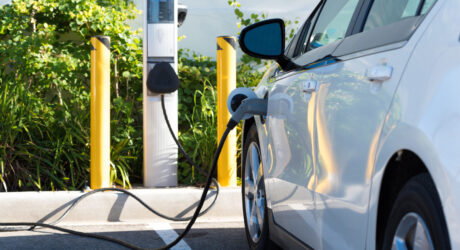
A Guide to Electric Car Batteries
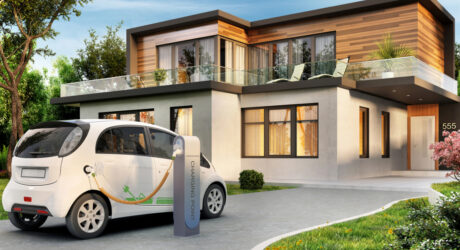
EV Home Charger Installation Guide: How to Charge an EV at Home
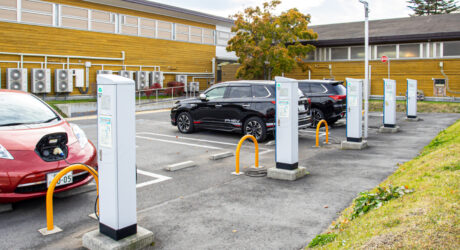
OZEV Grant: What Is It and Am I Eligible?
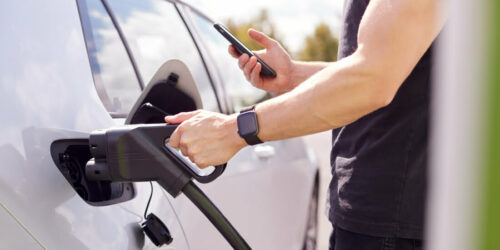
The Best Apps for Finding EV Charging Stations
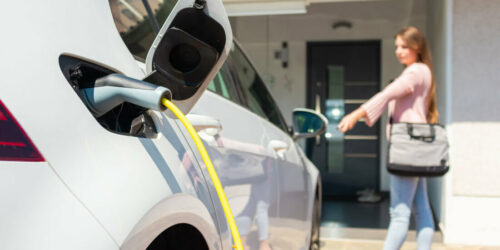
Electric Car Home Charging Stations: The Top Ten EV Chargers for Your Home
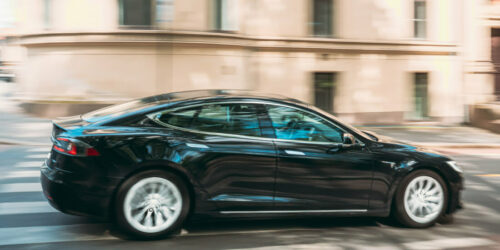
Should I Buy a Used Electric Car?
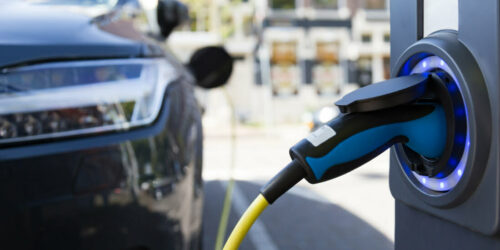
Electric Vehicle Range
